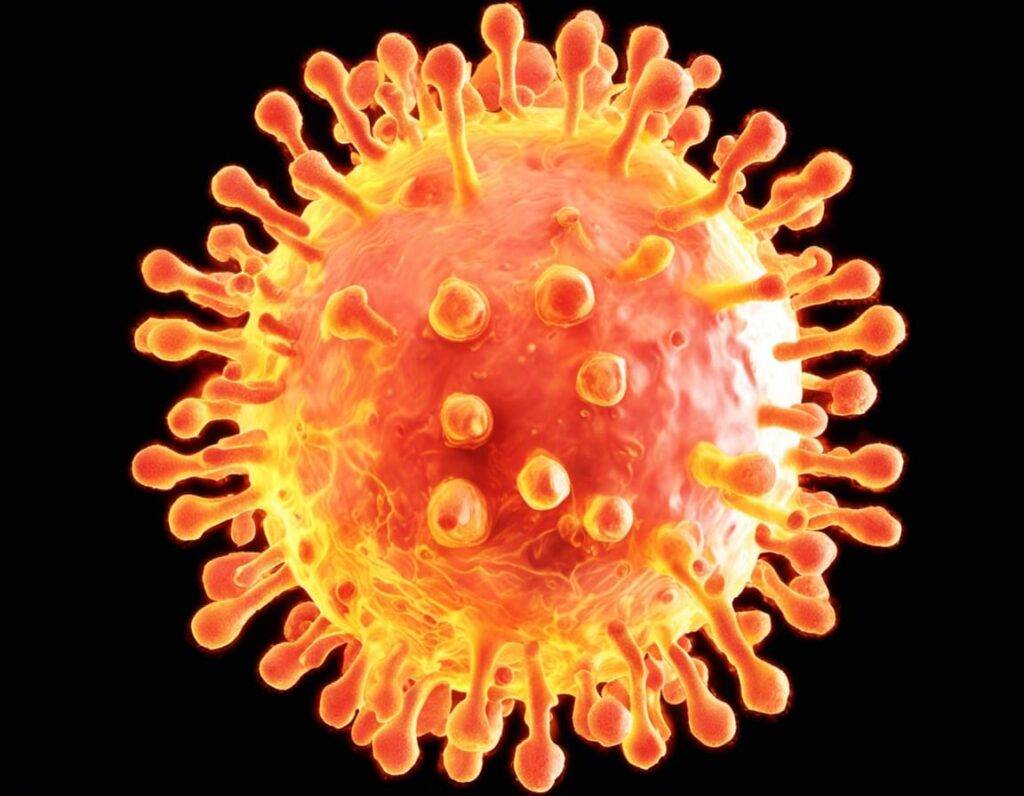In a world where information spreads like wildfire, it’s essential to separate health facts from fiction, especially when it comes to vaccines. This post will address common questions and concerns about vaccines, providing evidence-based answers that dispel myths and empower readers to make informed decisions. So, let’s roll up our sleeves and dive into the intriguing world of vaccines!
https://www.cdc.gov/vaccines/hcp/conversations/why-vaccinate.html
The Vaccination Breakdown: Answering Your Most Pressing Questions
1. What are vaccines and how do they work?
URL: https://www.historyofvaccines.org/timeline/all
Vaccines are biological substances designed to stimulate the body’s immune system, effectively training it to recognize and fight off specific diseases. By introducing a harmless component of a pathogen, such as a weakened virus or a protein fragment, vaccines mimic a natural infection without causing illness. This exposure triggers an immune response, which creates memory cells that can quickly recognize and neutralize the actual disease-causing agent if encountered in the future. Put simply, vaccines equip our immune system with the knowledge required to protect us from harmful pathogens.
Just a little heads up: some of the links on this site may be affiliate links, which means if you make a purchase through them, we might get a little kickback. But don’t worry, it won’t cost you a cent extra! Think of it as the universe secretly thanking us for helping you find a great deal. Your support keeps the good vibes flowing.
2. Are vaccines safe?
URL: https://www.who.int/vaccine_safety/initiative/en/
Yes, vaccines are rigorously tested for safety before being approved for use. Extensive clinical trials are conducted to assess their safety and effectiveness. In fact, vaccines undergo a more thorough scientific evaluation process than many other medical interventions. While all medical interventions carry a degree of risk, the benefits of vaccination far outweigh the rare potential side effects.
3. Can vaccines cause allergic reactions?
URL: https://www.chop.edu/conditions-diseases/vaccine-allergies-and-sensitivities
Although extremely rare, vaccines can, in some cases, cause allergic reactions. However, these reactions are typically mild and easily managed. Serious allergic reactions, known as anaphylaxis, occur in about one in a million vaccine doses. To ensure safety, individuals with a known allergy to vaccine components are carefully evaluated before vaccination, and appropriate precautions are taken, such as using specific alternative vaccines or administering the vaccine in a controlled environment under medical supervision.
4. Are there any side effects associated with vaccines?
URL: https://www.cdc.gov/vaccinesafety/Vaccines/index.html
Like any medication, vaccines can have side effects, but they are generally mild and temporary. Most common side effects include soreness at the injection site, low-grade fever, and mild fatigue. Serious side effects are extremely rare, occurring in less than1% of vaccine recipients. Remember, the risk of experiencing complications from a vaccine is significantly lower than the risks associated with the actual diseases they prevent.
5. Why are vaccines important?
URL: https://www.historyofvaccines.org/content/why-vaccinate
Vaccines play a vital role in safeguarding public health. They protect individuals from serious and potentially life-threatening diseases like measles, polio, and influenza. Additionally, vaccines help prevent outbreaks by achieving herd immunity, which occurs when a significant portion of the population is immunized. This shields vulnerable individuals who cannot receive vaccines due to age, medical conditions, or other factors. By preventing diseases, vaccines contribute to healthier communities, save lives, and reduce healthcare costs.
6. Are natural immunity and vaccines different from each other?
URL: https://www.ncbi.nlm.nih.gov/pmc/articles/PMC4599698/
Natural immunity, acquired through infection, and vaccine-induced immunity are two different avenues to achieving protection against diseases. While both types of immunity can provide resistance to specific pathogens, vaccines offer several advantages. They reduce the risk of severe illness and its associated complications without the person having to endure the potential risks of contracting the actual disease. Vaccines are also tailor-made to stimulate the immune system efficiently, while natural infections can sometimes result in unpredictable outcomes.
7. Which diseases can be prevented through vaccinations?
URL: https://www.cdc.gov/vaccines/vpd/vaccines-diseases.html
Vaccinations offer protection against multiple diseases. Some common examples include measles, mumps, rubella, polio, hepatitis B, influenza, pneumococcal infections, and human papillomavirus (HPV) infections. The range of diseases prevented varies across different age groups and countries, as vaccination schedules may differ. However, vaccines have profoundly impacted global health by eradicating or significantly reducing the incidence of many dangerous diseases throughout history.
8. What is herd immunity and why is it important?
URL: https://www.ncbi.nlm.nih.gov/pmc/articles/PMC3750959/
Herd immunity, also known as community immunity, occurs when a high proportion of a population is immune to a specific disease, either through vaccination or previous infection. This shields the remaining susceptible individuals, even if they cannot receive vaccines, as the pathogen struggles to find new hosts and spread. Herd immunity is crucial for protecting vulnerable populations, such as young infants, elderly individuals, and those with weakened immune systems. Maintaining sufficient vaccination rates is vital to prevent outbreaks and keep communities safe.
9. How long do vaccine immunizations last?
URL: https://www.cdc.gov/vaccines/vac-gen/immunity-types.htm
The duration of vaccine-induced immunity varies depending on the specific vaccine and disease. While some vaccines provide lifelong protection, others necessitate booster doses to maintain immunity. Frequent evaluation and long-term follow-up studies help determine the duration of vaccine effectiveness. For instance, tetanus and diphtheria vaccinations require booster shots every ten years, while vaccines like measles, mumps, and rubella (MMR) provide long-lasting immunity in most cases.
10. Can vaccines be given to individuals with weakened immune systems?
URL: https://www.nfid.org/immunization/immmunocompromised-adults/
Yes, vaccines can be given to individuals with weakened immune systems, but alterations in the vaccine schedule may be necessary. Immunization is particularly crucial for these individuals, as they are more susceptible to severe complications from vaccine-preventable diseases. Depending on the specific condition and its severity, modifications to the timing and type of vaccines may be advised. Consulting with a healthcare provider who specializes in immunocompromised individuals is essential for personalized recommendations.
11. Can pregnant women receive vaccinations?
URL: https://www.cdc.gov/vaccines/pregnancy/vacc-safety.html
Yes, some vaccines are recommended for pregnant women. Vaccination during pregnancy can protect both the mother and the developing fetus. Vaccines like the influenza vaccine and the Tdap (tetanus, diphtheria, and pertussis) vaccine are considered safe and beneficial during pregnancy. They provide crucial protection against severe illness and complications for both the pregnant woman and her newborn. Pregnant women should consult their healthcare provider to determine which vaccines are appropriate for their specific situation.
Just a little heads up: some of the links on this site may be affiliate links, which means if you make a purchase through them, we might get a little kickback. But don’t worry, it won’t cost you a cent extra! Think of it as the universe secretly thanking us for helping you find a great deal. Your support keeps the good vibes flowing.
12. Can vaccines cause autism?
URL: https://www.cdc.gov/vaccinesafety/concerns/autism.html
No, vaccines do not cause autism. Multiple rigorous scientific studies have investigated the alleged link between vaccines, specifically the measles-mumps-rubella vaccine (MMR), and autism, and no credible evidence supports this claim. The initial study that sparked the controversy has since been thoroughly debunked and retracted. Vaccines are safe and do not increase the risk of autism.
13. What is the recommended vaccine schedule for children?
URL: https://www.cdc.gov/vaccines/parents/schedules/index.html
The Centers for Disease Control and Prevention (CDC) provides a recommended vaccination schedule for children based on extensive research and evaluation. This schedule outlines when each vaccine should be administered to provide optimal protection. Starting from birth, various vaccines are given at specific intervals to ensure children are protected against multiple diseases at different stages of their development. Consulting with a pediatrician is crucial to adhere to the recommended schedule and receive personalized guidance.
14. Are vaccines mandatory for children attending school?
URL: https://www.nvic.org/vaccine-laws/state-vaccine-requirements/school-exemption-laws.aspx
Vaccination requirements for school attendance vary by country and jurisdiction. In many countries, including the United States, vaccination laws exist to protect public health and prevent the spread of vaccine-preventable diseases in school settings. While exemptions for medical, religious, or philosophical reasons may exist, they are regulated differently across different regions. It’s important to understand local laws and consult with healthcare professionals for information on vaccination requirements in specific areas.
15. Are there any religious or philosophical exemptions for vaccines?
URL: https://www.ncbi.nlm.nih.gov/pmc/articles/PMC6486762/
Certain jurisdictions allow religious or philosophical exemptions from vaccine requirements, although the specifics vary. However, it’s worth noting that granting such exemptions can compromise herd immunity and increase the risk of outbreaks. While respecting personal beliefs, it’s essential to balance individual rights with the collective responsibility of protecting public health.
16. Can vaccines be given to people with egg allergies?
URL: https://www.cdc.gov/vaccines/vac-gen/recommendations/allergies.html
Yes, most people with egg allergies can safely receive vaccines. Although some vaccines contain small amounts of egg protein, studies have shown that the risk of an allergic reaction is minimal. In cases where an individual has experienced a severe allergic reaction to eggs in the past, specific recommendations and precautions can be followed, such as administering the vaccine in a controlled setting under medical supervision.
17. Are there alternatives to vaccines, like homeopathic or natural remedies?
URL: https://www.ncbi.nlm.nih.gov/pmc/articles/PMC4854797/
Vaccines are the most effective way to prevent infectious diseases. While some homeopathic or natural remedies claim to support the immune system, they are not a substitute for vaccination. Evidence for their effectiveness in preventing or treating diseases is scarce or nonexistent. Relying solely on unproven alternatives puts individuals at risk of contracting and spreading vaccine-preventable diseases. It’s crucial to consult with healthcare professionals and rely on scientifically supported interventions.
18. Can vaccines be given to individuals with a history of autoimmune diseases?
URL: https://www.ncbi.nlm.nih.gov/pmc/articles/PMC4315586/
In general, vaccines can be safely administered to individuals with autoimmune diseases. However, specific recommendations may vary depending on the condition, its severity, and the type of vaccine. For some individuals, certain vaccines may require adaptations, such as avoiding live vaccines or adjusting the timing of immunizations. Given the complexities involved, consulting with a healthcare professional familiar with both vaccines and autoimmune diseases is crucial to ensure personalized recommendations.
19. Do vaccines contain harmful ingredients?
URL: https://www.chop.edu/centers-programs/vaccine-education-center/vaccine-ingredients
Vaccines contain a variety of ingredients, including antigens (harmless components of the disease-causing agent), preservatives, adjuvants (substances that enhance the immune response), and stabilizers. These ingredients are carefully selected and thoroughly tested for safety. While some ingredients may sound unfamiliar or alarming, they are present in minute quantities that do not pose significant health risks. Numerous studies and extensive regulatory reviews support the safety of vaccine ingredients.
20. Can vaccines cause infertility?
URL: https://www.fertstert.org/article/S0015-0282(21)00187-X/fulltext
There is no scientific evidence to support the claim that vaccines cause infertility. False information linking vaccines to infertility has circulated in some online communities, contributing to vaccine hesitancy. Vaccines undergo rigorous testing and monitoring for safety, and no credible scientific data suggests a link between vaccination and infertility. It is crucial to rely on evidence-based information when making decisions about vaccines.
21. Are vaccines effective against new strains or mutations of diseases?
URL: https://www.sciencedirect.com/science/article/pii/S2452302X20300395
Vaccines can be effective against new strains or mutations of diseases, but their effectiveness may vary. Vaccines are designed to stimulate the immune system to recognize specific components of pathogens. When viruses mutate, certain changes can impact how well a vaccine works. However, the structure of vaccines is often robust enough to provide some level of protection even against new strains. Vaccine development and surveillance programs continuously assess the need for updates or new formulations to ensure effectiveness against emerging variants.
22. Can vaccines prevent the common cold or flu?
URL: https://www.cdc.gov/flu/prevent/vaccine-benefits.htm
Vaccines can provide varying levels of protection against the flu and certain strains of the common cold. Influenza vaccines are formulated each year to match the circulating flu strains, helping reduce the risk of contracting and spreading the flu. While common cold viruses are numerous and constantly evolving, some vaccines, such as the COVID-19 vaccine, indirectly contribute to cold prevention by reducing the overall burden on the healthcare system and protecting vulnerable individuals.
23. Can vaccines provide lifelong immunity?
URL: https://vaxopedia.org/2018/05/04/do-most-vaccines-need-booster-doses/
Vaccine-induced immunity can last a lifetime for some diseases, while for others, booster doses may be required to maintain protection. The longevity of vaccine-induced immunity depends on various factors such as the vaccine, disease characteristics, individual factors, and ongoing research. For example, vaccines like measles generally offer long-term or lifelong protection, while others, like tetanus, require periodic booster shots. Immunization schedules and recommendations are continually revised based on the latest scientific evidence.
24. What is the difference between live, attenuated, and inactivated vaccines?
URL: https://www.hhs.gov/vaccines/vaccines-by-disease/pneumococcal/vaccine-types.html
Live vaccines contain weakened forms of the disease-causing pathogen, allowing the body to develop an immune response without causing illness. Examples include the measles, mumps, and rubella (MMR) vaccine. Attenuated vaccines are similar but use organisms that have undergone changes to decrease their ability to cause severe disease. Inactivated vaccines, on the other hand, contain killed pathogens or fragments of the pathogen, such as proteins or sugars.
While I do cite reputable sources, I am not a medical professional. Please use professional medical advice when making any health-related decisions.
List of Reputable Resources on Vaccines:
1. Centers for Disease Control and Prevention (CDC) – Safety
2. World Health Organization (WHO) – Vaccines and Immunization
3. National Institutes of Health (NIH) – Vaccine Research
4. Mayo Clinic – Vaccines: Are they safe?
5. American Academy of Pediatrics (AAP) – Immunizations
6. Vaccine Adverse Event Reporting System (VAERS) – Vaccine Safety Data
7. European Centre for Disease Prevention and Control (ECDC) – Vaccination
8. National Vaccine Information Center (NVIC) – Vaccine Information for Consumers
9. Public Health Agency of Canada (PHAC) – Vaccines and Immunization
10. Food and Drug Administration (FDA) – Vaccines, Blood & Biologics
11. New England Journal of Medicine – Vaccine Studies
12. The Lancet – Vaccination Research
13. Journal of the American Medical Association (JAMA) – Vaccine Safety
14. British Medical Journal (BMJ) – Immunizations
15. PubMed – Vaccine Research Studies Database
16. Cochrane Library – Vaccination Reviews
17. American Academy of Family Physicians (AAFP) – Immunization Information
18. National Health Service (NHS) – Vaccinations and Immunizations
19. National Foundation for Infectious Diseases (NFID) – Vaccines and Immunization
20. Vaccines.gov – Comprehensive Vaccine Information
21. Harvard Health Publishing – Vaccine Advice
22. ScienceDirect – Vaccination Journal Articles
23. New York State Department of Health – Immunization Information
24. The Vaccine Education Center at Children’s Hospital of Philadelphia
25. American Medical Association (AMA) – Vaccine Resources
26. National Network for Immunization Information (NNii)
27. Australian Government Department of Health – Immunise Australia Program
28. World Vaccine Congress – Vaccination Conferences and News
29. Immunize Canada – Immunization Information
30. Vaccine Education Center at The Children’s Hospital of Philadelphia

Just a little heads up: some of the links on this site may be affiliate links, which means if you make a purchase through them, we might get a little kickback. But don’t worry, it won’t cost you a cent extra! Think of it as the universe secretly thanking us for helping you find a great deal. Your support keeps the good vibes flowing.

































































































